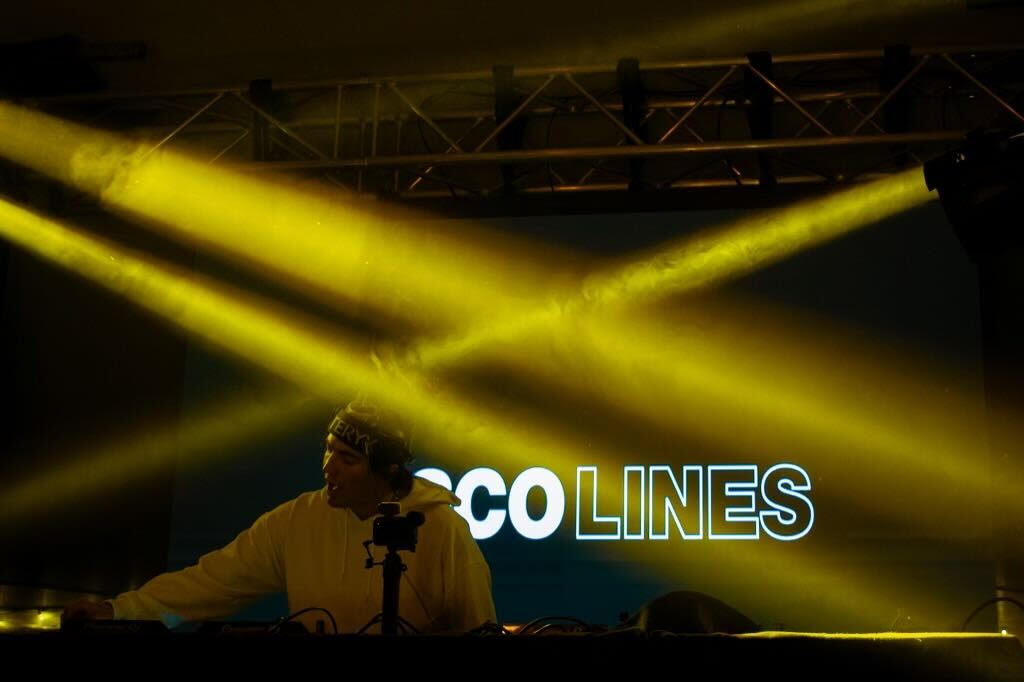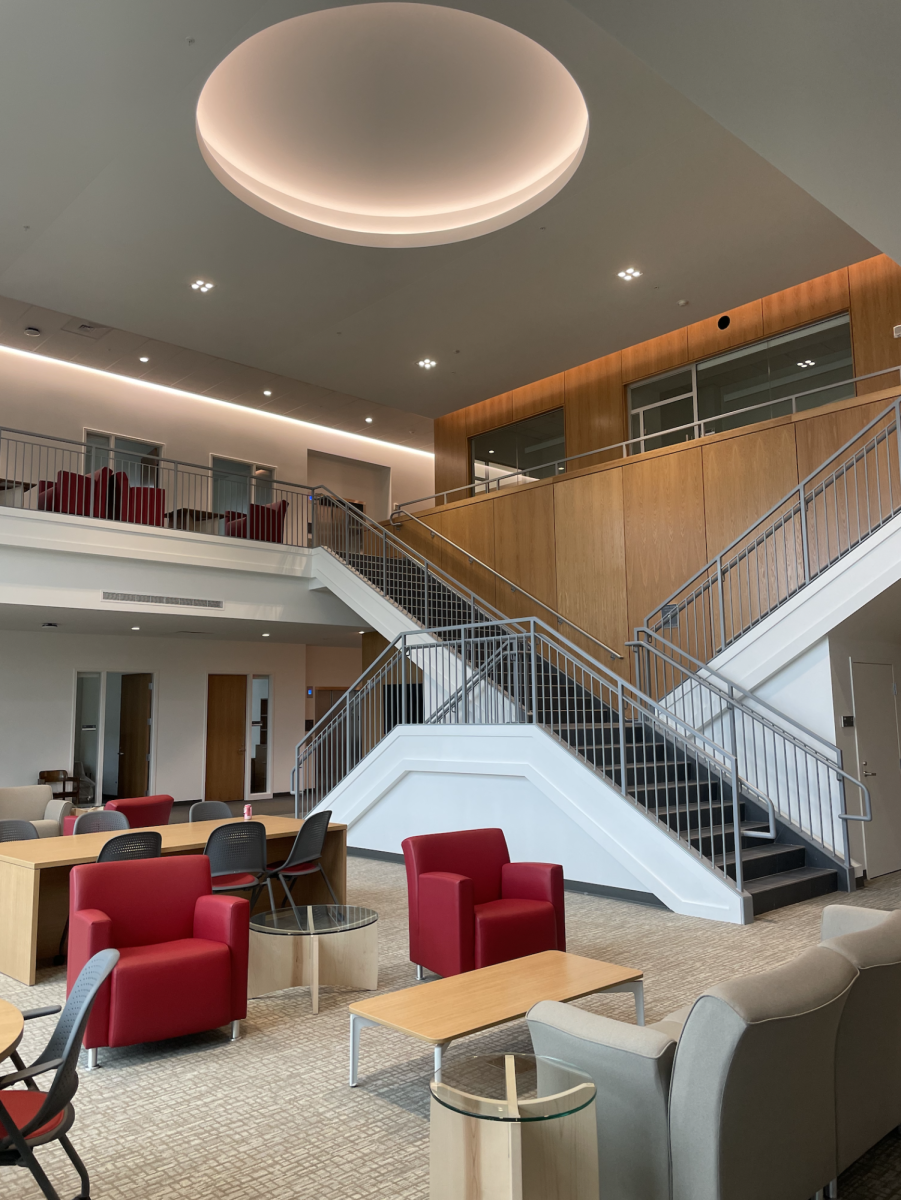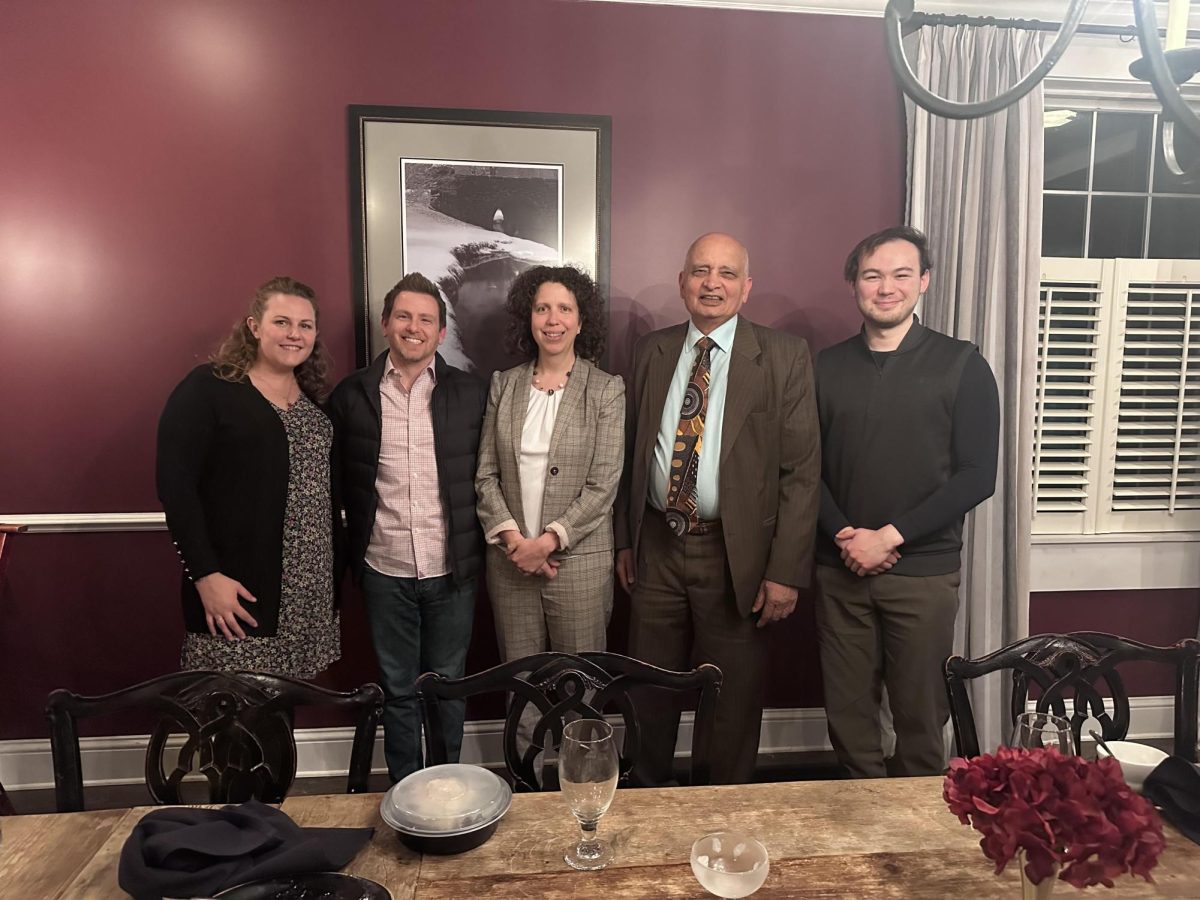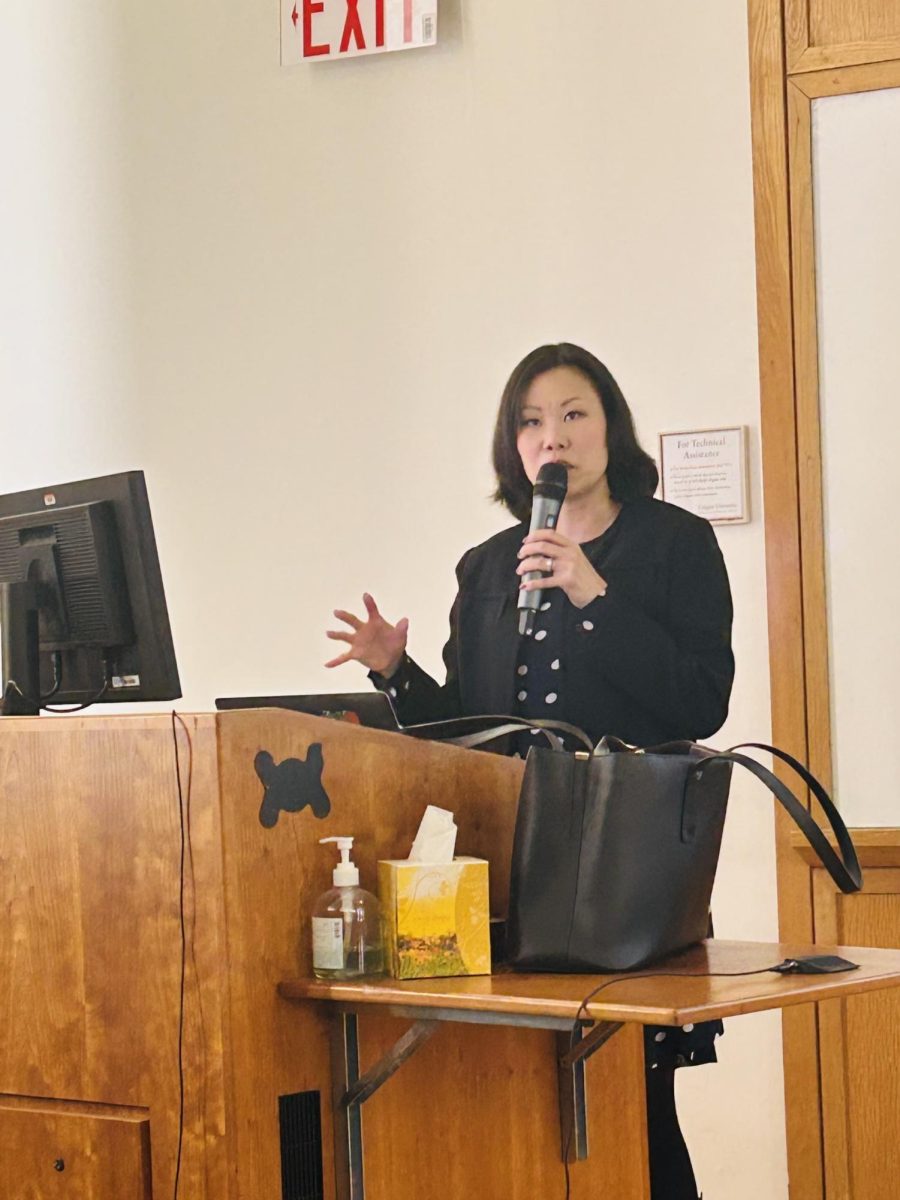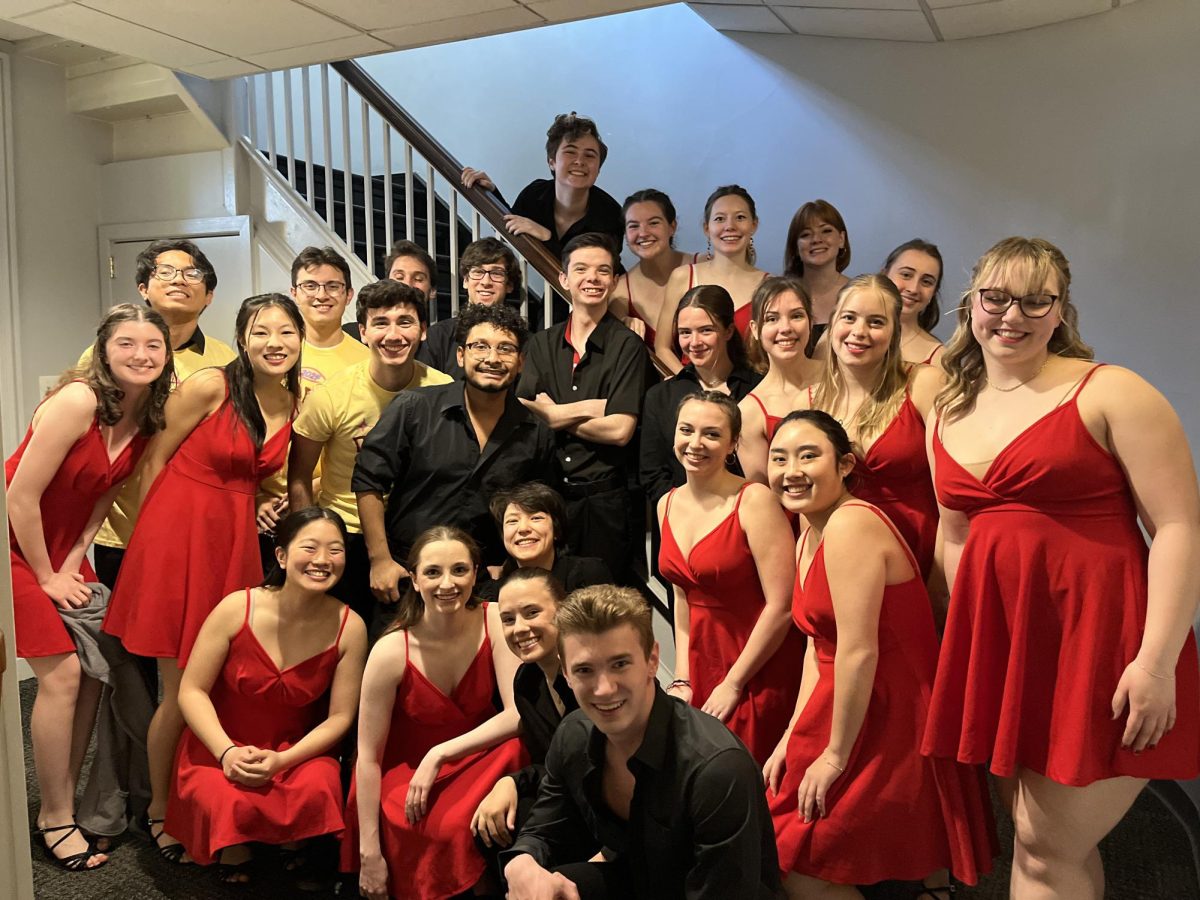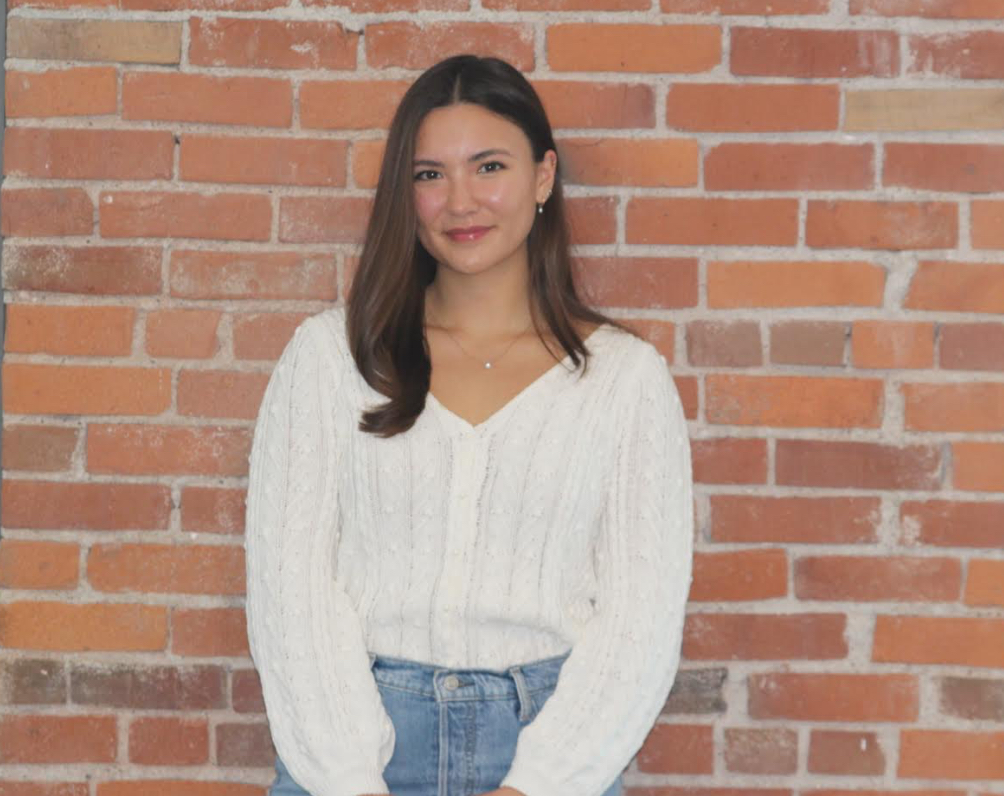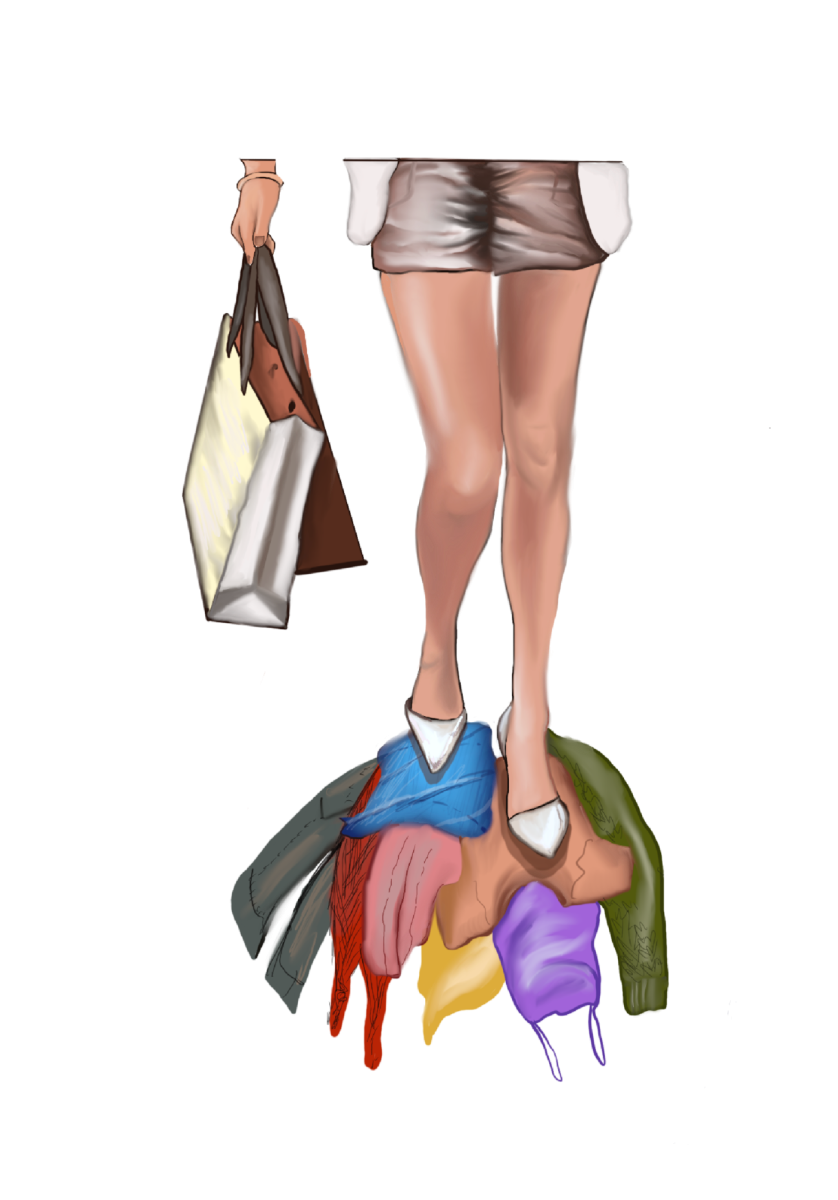Colgate University’s 15th president, Rebecca Chopp, visited campus for Arts, Creativity and Innovation Weekend. During a panel at the Colgate Memorial Chapel on Thursday, April 4, Chopp discussed her experience after being diagnosed with Alzheimer’s disease and her new book, titled “Still Me: Accepting Alzheimer’s Without Losing Yourself.” She was joined by Douglas Johnson, the dean of academic and curricular affairs and William R. Kenan Jr. professor of psychological and brain sciences, and Ellen Percy Kraly, professor of geography and environmental studies emerita.
The panel, titled “Still Learning: Panel Conversation on Science of Alzheimer’s,” began with Kraly introducing Chopp. Kraly explained that when Chopp reflected on her time as president at Colgate, she attributed her success to the study of organizations and communities that go through change. Kraly related this to Chopp’s experience over the past five years after being diagnosed with Alzheimer’s disease.
“During these past few years, [Chopp] has undertaken her own transformation — not by choice, but because she was diagnosed with Alzheimer’s disease,” Kraly said. “But much like an institution she has led, [Chopp] has held fast to her personality [and] to her determination to educate and to advocate.”
Chopp was welcomed to the stage with a standing ovation from the crowd and began by sharing some words of appreciation for her time at Colgate.
“It was at Colgate where I began to realize how the arts and sciences come together in a phrase we always use: ‘the spirit of Colgate,’” Chopp said. “It’s about being a full person — a whole person — and how all of this can combine into making a life worth living and a country and world worth living in.”
Before answering questions from Kraly and Johnson, Chopp gave a brief overview of her experience with Alzheimer’s and a description of what she discusses in her book. Chopp explained that after her first neurologist gave her a bleak outlook of the future, she used the spirit of a liberal arts education to search for another answer.
“Five years ago, on March 7, I was diagnosed with Alzheimer’s […] and I said [to the neurologist], ‘What can we expect?’ She said, ‘Well, probably in three years, you won’t be able to button your shirt,’” Chopp said. “So I did what all my liberal arts training taught me to do: If you don’t like the answer, figure that it’s wrong.”
Chopp visited a different neurologist after this experience, looking for a more hopeful approach to the diagnosis.
“This one looked at all the same tests and said, ‘You have Alzheimer’s, but there’s so much work to do.’ She began to tell me about recent research,” Chopp said. “She told me there’ll be medication soon. That was five years ago. She told me I could live with joy.”
After finding the answer she was looking for, Chopp spent the next years researching how to live her life to the fullest with Alzheimer’s. Her book is intended to explain her research to others who have gotten the diagnosis and inspire them to work to live a life with joy. Chopp shared the four ways she has discovered to live a better life with Alzheimer’s. These include the importance of early diagnosis, building your body to prolong your brain, creativity and spirituality. Currently, attaining a diagnosis for Alzheimer’s is a difficult process that requires a neurologist and can take a long time. However, with the use of biomarkers, an Alzheimer’s diagnosis can be found simply from a routine blood test. On early diagnosis, Chopp explained that science has been improving over the years to provide easier tests for Alzheimer’s.
“The earlier you get diagnosed, the more you can do to help yourself,” Chopp said. “The good news is that in the next one to two years, we will have out on the market biomarkers that will be a simple test that will be able to indicate with a strong positivity that you have the disease.”
The second method Chopp described is building your body to prolong your brain, centered around diet, exercise and sleep. When Chopp got the diagnosis, she cut out all processed food and adopted a Mediterranean diet. Chopp provided an anecdote about how exercise helped her stay focused and build enough mental strength to complete her book.
“I have this little husky […], so we walked extremely fast for about an hour to an hour and a half in the morning,” Chopp said. “That got all those chemicals in my brain to allow me to concentrate and to go home and write that book.”
In terms of creativity, Chopp said she picked up painting. Though she had never done it before, she explained that a person can learn creativity. It allowed her to exercise her brain in a whole new way.
“You can learn creativity. Creativity, with the 100,000 neurons in the brain, allows a kind of flexibility and informs new pathways. It also reduces anxiety,” Chopp said.
The panel then transitioned into questions from Johnson and Kraly, centered mainly around personal experience and science. Johnson asked how Chopp responds to people recently diagnosed who have reached out to her after reading her book. Chopp explained that these people are simply looking for hope, just as she has. One way she is able to provide this for them is by explaining the innovations that have taken place in medicine.
“With new medications, we are going to be able to delay those later stages. We’re going to be able to delay symptoms,” Chopp said. “So, there’s no cure. Those later stages are going to come […], but not in the next two years, not in the next three years, not in the next five years. It may even be 15 years. And that’s what I find the most important thing — is giving people hope.”
Johnson centered his next questions around the idea of balance. He pointed out that anybody who lives over the age of 25 will experience some form of cognitive decline. After hearing Chopp explain the way she lives now, exercising every day, cutting out processed food and heavily focusing on the health of the mind, Johnson asked how she and others getting older can still balance this healthy lifestyle with pleasures and fun. Chopp responded mainly by weighing the benefits of living a healthy lifestyle and, additionally, the motivations to do so.
“Why do I want to prolong my life? Well, I have a wonderful family, wonderful husband and some good friends, and I don’t spend much time with them, and I want to spend time with them,” Chopp said. “I want to be an advocate. There’s so many things I want to do. To do these things, I’m going to have to stay healthy.”
She added that once you start to shift your lifestyle like she did, these more immediate pleasures become less appealing. Chopp gave the example of ice cream, explaining that once she changed her diet and cut out processed foods, she no longer craved it.
Johnson and Kraley then asked questions about the importance of education. Chopp emphasized how important it is to take advantage of a liberal arts education and use it to make a difference in the world. She explained the misfortunes of the medical industry and the importance of using education to resolve some of those issues.
“The doctors don’t have enough time. The average neurologist appointment is about 15 minutes. Neurologists are extremely hard to come by,” Chopp said. “Five years ago, I saw my neurologist once every quarter, then once every six months. Today, I can only get an appointment once a year.”
Lastly, Chopp answered the question of how individuals can contribute to the cause in their daily lives.
“Get educated, and then maybe you will begin to notice that your neighbor’s personality is changing; maybe you will be the one to say something to a relative. There is so much you can do,” Chopp said. “You can also support community groups, especially ones that support the elderly […], support the people with [Alzheimer’s], support the people who don’t have it by educating them and support research.”
Sophomore Theo Freeman attended the panel and was interested in the discussion of Alzheimer’s from a scientific and medical perspective.
“I was excited to learn about new biomarkers and vaccines coming out in the near future. I was surprised to hear about the severe lack of availability of neurologists in the U.S.,” Freeman said. “[Chopp] mentioned appointments being booked months and years in advance, which can be detrimental to patients seeking an early diagnosis.”
Sophomore Ashton Roth also attended the panel and was taken by how inspiring Chopp’s story was.
“It was really uplifting and empowering to hear how Rebecca Chopp has been able to regain control of her own life despite the pressures society puts on her to ‘slow’ down her life,” Roth said. “She emphasized the importance of doing creative things with her brain, such as painting and drawing. Even something as simple as doodling is good for the brain, too.”
After the panel, Chopp concluded her visit with a book signing on Friday, April 5, at the Colgate Bookstore.







